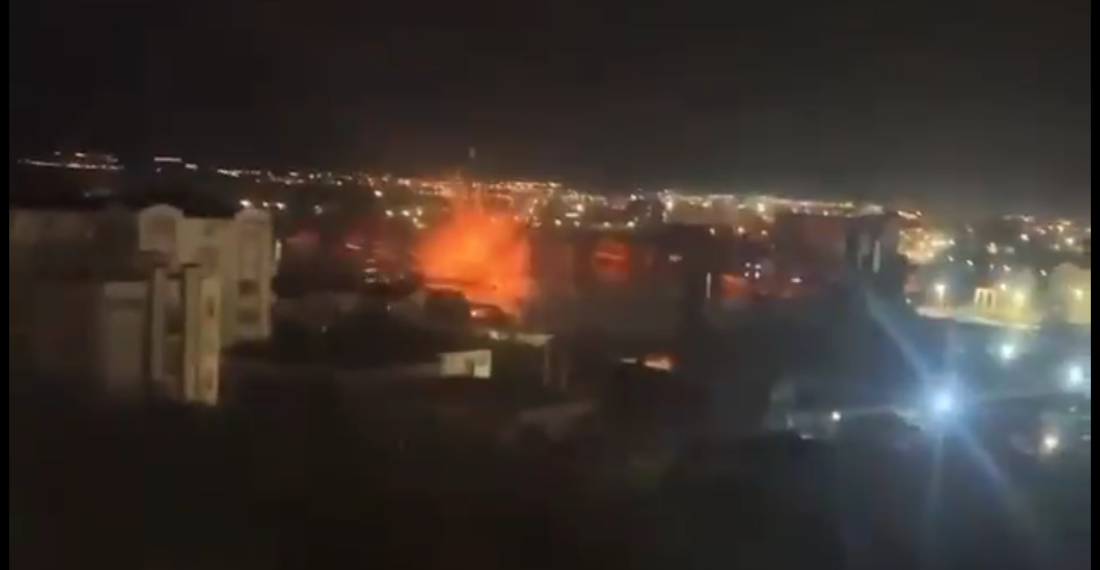Mikhail Razvozhaev, the head of the Russian occupation government in Crimea, has announced that the Black Sea port city of Sevastopol came under drone attack on Monday morning (24 April) at around 3.30am.
"Our fleet is now repelling an attack by surface drones from a foreign raid," he on Telegram, referring to Russia’s Black Sea Fleet. "All city services are on standby."
Razvozhaev claimed that one of the drones was destroyed and the other self-combusted, with no casualties or damage reported. No further information was provided.
Despite the occupation authorities' insistence, one photo that has emerged online shows a large plume of dark smoke rising from the direction of the port where Russia's Black Sea fleet is moored, suggesting a successful strike.
Another video shows an explosion purportedly being the moment of a drone's interception by Russian air defense.
Suspected Ukrainian drone falls east of Moscow
Separately, also on Monday morning, reports emerged of a suspected Ukrainian drone allegedly filled with explosives that fell in a forested area near the town of Noginsk, east of Moscow.
While Kyiv has not commented on the incident, Russian media outlet Baza has alleged that it was a Ukrainian-produced drone that ran out of fuel.
If it is true that the object in question was indeed a Ukrainian-made drone, this would suggest that Ukraine would theoretically be able to strike the centre of Moscow.
Indeed, in an interview with Radio NV on 17 April, the head of the Main Intelligence Directorate of the Ukrainian Defense Ministry Kyrylo Budanov said that Ukrainian drones can "reach Moscow and further".






